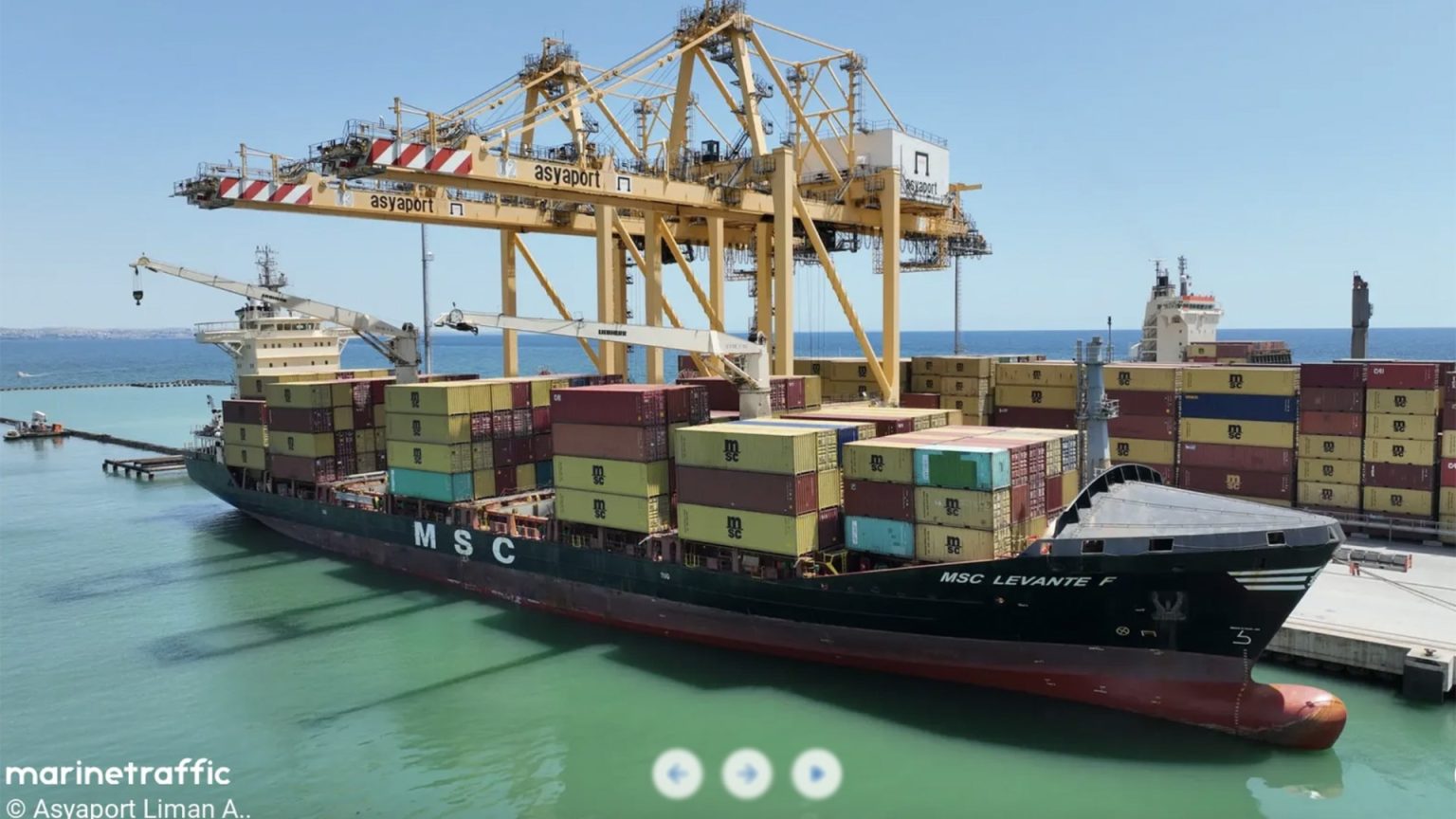Vladimir Putin’s Latest Escalation in the Ukraine Conflict: A Dangerous New Chapter
The conflict in Ukraine has taken a concerning turn as Russian President Vladimir Putin has escalated tensions with a reported hypersonic missile strike targeting a foreign cargo ship. According to Russian claims, the missile strike was aimed at a Panama-flagged container ship, MSC Levante, which had arrived at the port of Odesa. The ship was allegedly carrying British weapons destined for Ukraine, although no concrete evidence has been provided to substantiate this claim. The attack, carried out using an Iskander-M missile, reportedly sank the vessel and destroyed its cargo. Ukrainian sources indicate that two port workers were injured in the strike, which also caused significant damage to the port infrastructure. This incident underscores the growing intensity of Russia’s aggression in the region, raising alarms among global leaders about the potential for further escalation.
The Attack on MSC Levante and Its Implications
The MSC Levante, a container ship operating under a European company’s ownership, was struck by two missiles while preparing to unload its cargo at the Odesa port. Images circulating online appear to show the vessel with containers of different colors, which Russian Telegram channels claim contained British sea drones and weapons from a Turkish NATO base. However, as of now, there is no conclusive evidence supporting the claim that the ship was carrying military supplies for Ukraine. The attack marks yet another incident in a series of strikes targeting ships in Ukrainian ports, with at least 20 foreign merchant ships reportedly damaged in previous Russian attacks. This latest strike highlights the risks faced by civilian vessels operating in conflict zones and raises concerns about the safety of maritime trade in the region.
Global Diplomatic Efforts Amid Escalating Tensions
As Russia continues its relentless assault on Ukraine, global leaders are ramping up diplomatic efforts to salvage a potential peace deal. A high-stakes summit is set to take place in London, attended by leaders from key European and NATO countries, including France, Germany, Denmark, the Netherlands, Norway, Poland, Spain, Turkey, Finland, Sweden, the Czech Republic, and Romania. The summit aims to explore the possibility of establishing a European military force to support a ceasefire in Ukraine. Sir Keir Starmer, the Prime Minister of the United Kingdom, has emerged as a key player in these efforts, positioning himself as a mediator between the United States and Europe. In a recent BBC interview, Starmer revealed that the UK, France, and Ukraine have agreed to work on a ceasefire plan, which will be presented to former U.S. President Donald Trump.
Starmer’s Role in Bridging the U.S.-Europe Divide
Sir Keir Starmer’s efforts to mediate between the U.S. and Europe have taken on added urgency following a tense public clash between Trump and Ukrainian President Volodymyr Zelensky during a televised meeting at the White House. The confrontation, which quickly escalated into a heated exchange, saw Trump and his ally, Senate candidate J.D. Vance, accuse Zelensky of being ungrateful for U.S. military support. Trump threatened to withdraw American aid, stating, "Your people are very brave, but you’re either going to make a deal or we’re out." In contrast, Starmer has sought to maintain a tone of diplomacy and support for Ukraine, reaffirming the UK’s commitment to Kyiv during a bilateral meeting with Zelensky at 10 Downing Street. Starmer’s approach emphasizes the importance of maintaining unity among Western allies in the face of Russian aggression.
Zelensky’s Reception in the UK and the Road Ahead
Zelensky’s visit to the UK was met with a starkly different reception compared to his tense encounter with Trump. The Ukrainian leader received a hero’s welcome in London, with thousands of people gathering to show their support for Ukraine’s struggle against Russia. Speaking outside Downing Street, Zelensky expressed his gratitude to the British people for their unwavering support since the start of the war. The UK’s Prime Minister, Sir Keir Starmer, echoed this sentiment, assuring Zelensky of the UK’s "full backing" and commitment to Ukraine’s cause. These gestures of solidarity stand in contrast to the strained relations between Zelensky and Trump, highlighting the shifting dynamics in international diplomacy as the conflict in Ukraine continues to unfold.
The Human Cost of Conflict and the Path to Peace
The attack on the MSC Levante and the broader conflict in Ukraine remind us of the human cost of war, with civilians increasingly caught in the crossfire. The incident also underscores the urgent need for a diplomatic resolution to the conflict. As global leaders convene in London to discuss potential solutions, the focus remains on finding a path to peace that respects Ukraine’s sovereignty while addressing the concerns of all parties involved. The coming days will be critical in determining whether the international community can unite to halt the violence and pave the way for meaningful negotiations. For now, the people of Ukraine continue to bear the brunt of this protracted conflict, their resilience and determination serving as a reminder of the human spirit’s capacity to endure even in the face of overwhelming adversity.


